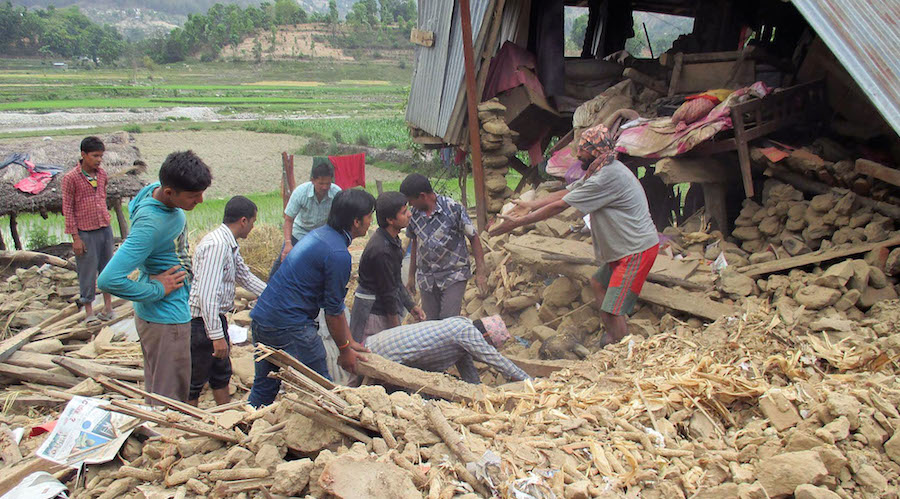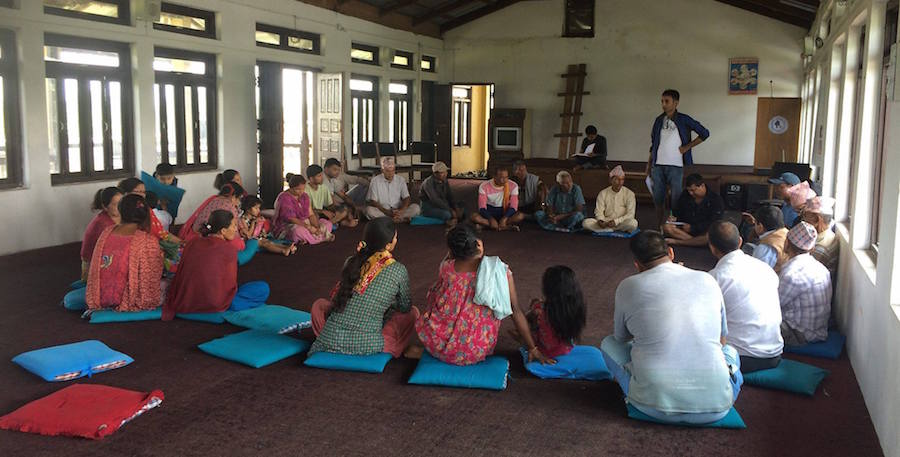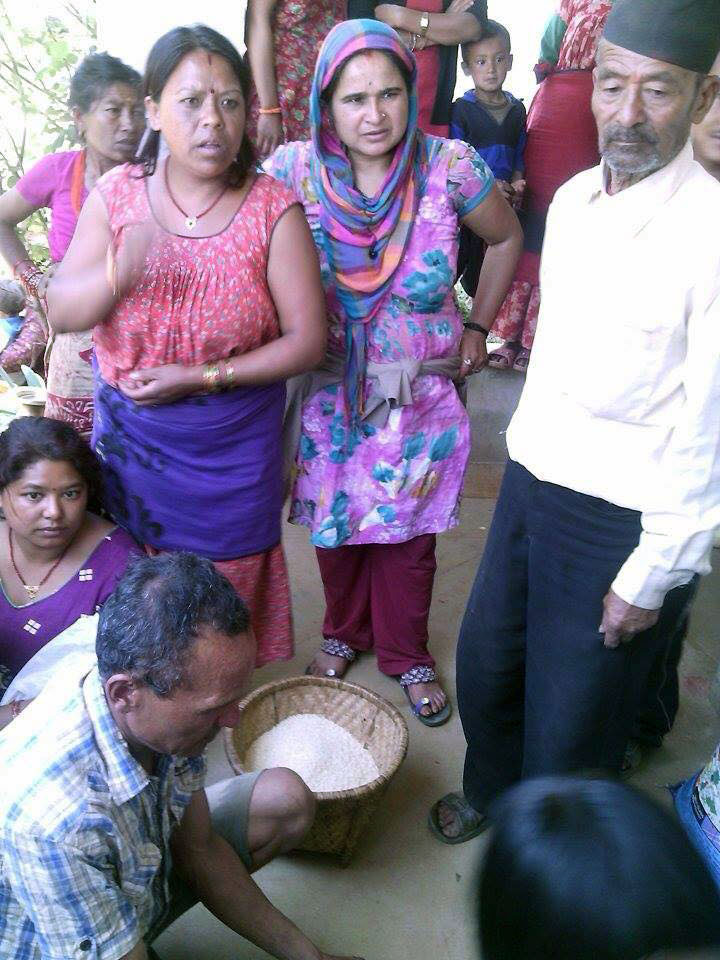
Donate today to help our partner communities rebuild through READ’s Nepal Earthquake Fund
As of April 30, over 5,800 are known dead with injuries surpassing 10,000 following the earthquake and subsequent aftershocks that have rocked Nepal. Over 8 million people are in need of humanitarian relief. Much of the Kathmandu Valley has been destroyed, while the news from many of the remote villages where READ Global works remains sparse. Any relief reaching these rural areas is still severely limited.
Thankfully we know that our Kathmandu staff members are safe, as they focus this week on their families and try to return to their homes to assess damage. Due to aftershocks and unstable structures, many are still living in tented camps.
READ has a network of leaders throughout the country and they have stepped up to take action.
- Click here to donate to our relief fund.
- Click here to download an overview about how your donation will help READ Global respond to the earthquake.
- Click here for the latest updates on our earthquake relief efforts in Nepal.
The leader of the READ Center in Jhuwani, Chitwan has been working tirelessly with our READ Global, Nepal and Bhutan teams to connect with our 59 READ Centers and 127 partner communities in Nepal. We have heard from many of our partner communities that they are unharmed.
Unfortunately, we know that at least sixteen partner communities have sustained moderate to severe damage. Many people have lost their family members, friends, and their homes, and several people are injured. In at least a dozen cases, the READ Center has been damaged as well.
Though we remain hopeful, a few of our communities are located near the epicenter and we have not been able to reach them yet.

Members of the Jhuwani Community Library meet to discuss response efforts
Yet in many communities, the READ Center is still standing strong and operating and is providing shelter to those who need it. Centers are already organizing blood drives, providing free ambulance services, and distributing food, water, and tents to members of their communities who are in need.
Centers with solar panels are providing electricity to charge community members’ cell phones—often the only form of communication. We have been inspired to hear that some READ Centers are launching fundraising campaigns to support earthquake victims in other parts of the country. And youth groups formed by the Centers are volunteering their time to support relief efforts.

Community members donate rice
Now, more than ever, READ Centers are serving as community hubs, providing information and critical resources like health services and Internet access.
In the coming weeks and months, we will continue working with our team on the ground, as well as partner organizations providing immediate disaster relief, to help communities rebuild their lives. Thanks to our deep connections in many rural communities, the network of READ Centers has been able to swiftly take action.
It is too early to know the full extent of the damage, but our goal is to ensure all of our 59 READ Centers in Nepal are restored so they can continue to provide life-changing services to the 1.9 million Nepali villagers who currently have access.
We know that many Nepalis will look to their READ Centers for assistance as they rebuild their lives. READ is in this for the long run, and we know that it could take months or even years for communities to get back on their feet. As media attention wanes, we want to be sure they receive the support and attention they deserve.





